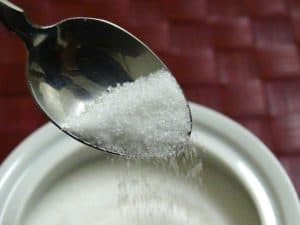
What is Xylitol?
Xylitol looks like sugar and tastes like sugar, but there are a few key differences between the two. For example, Xylitol is lower in calories than sugar and also doesn’t increase blood sugar levels the same way sugar does. This combination makes xylitol better for your body and overall health — and you don’t need to sacrifice taste! Xylitol is natural, as its found in some fruits and vegetables, and your body produces a small amount of it during digestion. But its benefits don’t stop there. As your dentist in St. Petersburg knows, xylitol can also help improve and protect your oral health.
How Does Xylitol Improve Oral Health?
Everyone has bacteria in their mouths, that’s to be expected. But one type of bacteria, called Streptococcus mutans, is the main culprit behind plaque buildup and the development of cavities. These damaging bacteria love to feed on sugar. Therefore, the more sugar we introduce to our mouths, the more we fuel the bacteria and the more damage they can cause. On the other hand, while Streptococcus mutans will still feed on xylitol, they won’t be fueled by it. Quite the opposite, in fact. Xylitol actually starves the bad bacteria. Additionally, xylitol can:
The Best Way to Get Xylitol
One of the easiest, as well as the best ways to treat your teeth to the benefits of xylitol, is by chewing gum that contains it. This method of getting your teeth exposed to xylitol has additional benefits such as:
Of course, while xylitol can be beneficial to oral health, it’s not a be-all-end-all solution. It’s still crucial that you brush and floss every day, as well as see your dentist in St. Petersburg regularly for professional dental cleanings and exams.
We all know that your dentist in St. Petersburg really dislikes sugar. But that doesn’t necessarily mean that you need to pass up treating yourself to something sweet. While we’re all pretty familiar with the numerous sugar substitutes available to us, we want to pay particular attention to one that… Read More…